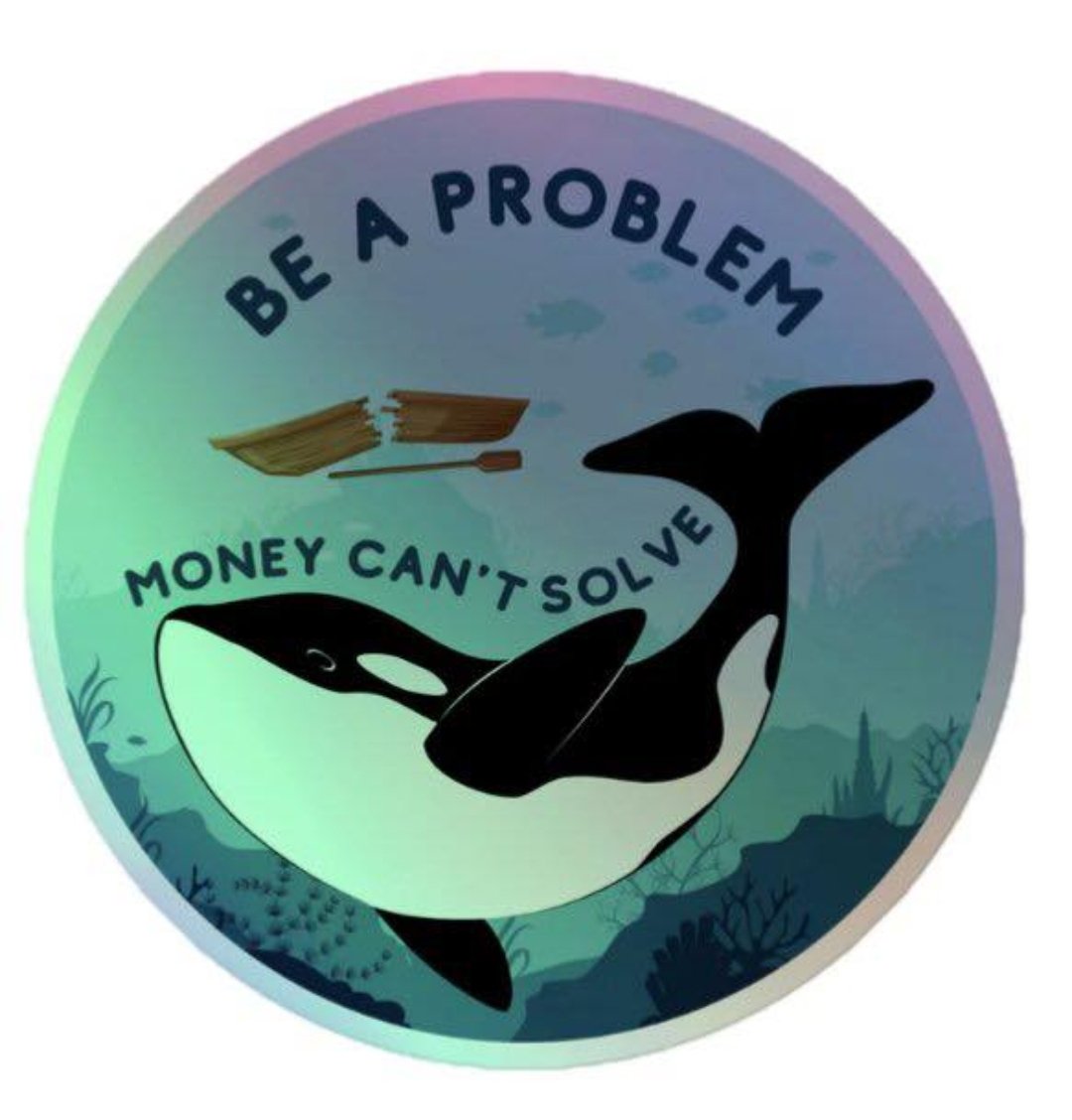Let's just assume that there are 100 shares of GameStop (worldwide) and go from there. Let's assume that the price per share/stock before all of this was $100 (in a "good" economy, etc.). How would this all work?
A nice timeline, step by step, line by line would be nice. For ex:
-
Stock is selling at $100 per share (100 shares total). June 20XX
-
Economy starts tanking, stock now at $95 per share. August 20XX
-
People start predicting that it will go down further, thus they start "betting" (insert definitions that are accessible and not jargony), etc.
^ something like that would be nice. Thanks!
So this article is a great starting place, but I'll try to break it down for those of you that don't want to go to Bloomberg News.
Gamestop as a company right now is basically a Blockbusters in the late 2000's. It's been dying a slow death for a long time. It wasn't quite dead yet though. Shares were around $5 in June 2019 where we'll start our story.
Many large financial institutions were 'shorting' the stock, which isn't quite like buying a stock. When you short a stock, you are actually 'borrowing' it, before immediately selling it to someone. You then hope the stock price goes down in the future, where you buy the stock back at the lower price and return it to the original owner. Your profits come from the change in price over that time. For example, a stock is $10, and you short it. When you have to return the stock to the original owner the stock price has dropped to $5. Thus, you made $5 by shorting the stock.
The flipside of that is what happens if the price increases by the time you have to return it. There is no limit to how much money you can lose. If that $10 stock went up in price to $50, you would lose $40 when you had return it. If the price went to $1000, you would be out $990, even though you only spent $10 on the initial short.
A user of WSB noticed that despite the trajectory Gamestop was on, it was probably worth more than its current stock price. One or two big Fund Managers also saw potential in the stock. The pandemic came in and kept Gamestop on life support, and then the new console generation came out, bolstering their value. Many people who were shorting the stock didn't even expect the stock to make it to the end of 2020, so this was starting to look bad for them.
WSB starts memeing on the stock, because it's fun thinking of these institutions losing money, and they're all gamers anyway, so they are already familiar with Gamestop.
Long story short, the gamestop price topped out a little under $150 today, a 30x rise from the $5 it was at in June 2019. The big financial institutions need to cover their position, which means they need to buy more shares, which can increase the stock price even more. They need the stock to go down in price, or they're fucked. WSB dinguses aren't selling though, because they know they have the institutions by the nuts. The entire system wants the price to go down, but the idiots over at WSB have realized that if they hold the price will continue to rise.
Hopefully this helps a bit!
The big financial institutions need to cover their position, which means they need to buy more shares
I think this is the real magic of the situation - the people who shorted the stock MUST buy it when their short expires. And the number of shares shorted is actually MORE than the total number of shares. So there comes a "squeeze" where a bunch of people have to buy a bunch of shares of stock at any price, and you've got a bunch of people (WSB people doing memes) who basically say "nah I don't wanna sell at any price" so there's no limit to how high the price can get until someone breaks down and sells.
And the number of shares shorted is actually MORE than the total number of shares.
How is this possible? For example, if I own 10 shares and "borrow out" all 10, how can I borrow out more?
Okay so I'm person A, I think the stock is going to go down, so I borrow 10 shares from person B. I don't just hold on to them, if I think the price is going down, I sell them to person C because I plan to re-buy them at a lower price later, so I can make money. Person C can then "loan" the shares to another person. So now all 10 shares are loaned twice. Stonks.
I think I'd understand this better if I imagine you as Margot Robbie in a bubble bath.
Okay so I’m Margot Robbie in a bubble bath, I think the stock is going to go down, so I borrow 10 shares from person B. I don’t just hold on to them, if I think the price is going down, I sell them to person C because I plan to re-buy them at a lower price later, so I can make money. Person C can then “loan” the shares to another person. So now all 10 shares are loaned twice. Stonks.
Person C can then “loan” the shares to another person. So now all 10 shares are loaned twice. Stonks.
Jesus and this is allowed? Wtf
This is where everyone is supposed to put enough of their money so they can retire.
The thing you're supposed to put your money so you can retire is in actually buying and holding on to stocks. (Because shares come with a vote on how the company operates, and enough of the share holders are voting "make shareholders rich" that you can assume this is what the company will do. Capitalism!)
Shorts and puts and calls and all that shit is a layer of absurd gambling on top of that. Which, according to standard economic theory, makes the stock prices more stable and reliable for people doing the buy-hold thing. (Doesn't seem like a great theory to me tbh.)
And I'm assuming all through this, Person B (original owner) can "sell" their interest in the stock? In other words, they can go to Person D and say "hey I got ten stocks that Person A (borrower) is borrowing right now, do you want to buy them? You'll get extra interest from A when he gives the shares back!"
All the while Person B has no idea that Person A "sold" to Person C, and has no idea that Person C "loaned" to somebody else. Is this also allowed (i.e. for A to sell stock even though someone else is borrowing it)?
EDIT: I mixed up the people lol. This is needlessly complicated and it's a fucking travesty that it's allowed.
I have absolutely no idea, but based on my understanding of wall street and their obsession with creating contracts to do every damn thing, I wouldn't be surprised if someone came up with a way to do that or something like it.
Its actually not i dont think, but it happens anyway
Although it is very similar to how banks create money if you didn't know about that. inflation doesnt come from the mint printing money, it comes from the fed setting the interest rate and minimum reserve ratio. there are some good videos on this but theyre probably all from ghouls.
https://youtu.be/JG5c8nhR3LE
Yeah I'm somewhat familiar with fractional reserve banking and how banks pretty much just create money "out of thin air."
Well... yes and no. No in that it actually isn't allowed and naked short selling is illegal, but yes in that hedge fund douchebags don't actually have to follow laws.
When you short a stock, you are actually ‘borrowing’ it, before immediately selling it to someone. You then hope the stock price goes down in the future, where you buy the stock back at the lower price and return it to the original owner. Your profits come from the change in price over that time. For example, a stock is $10, and you short it. When you have to return the stock to the original owner the stock price has dropped to $5. Thus, you made $5 by shorting the stock.
Why would someone let you borrow their stock? What's in it for them?
"hey, can I borrow that stock you have? I'll pay you interest"
Off of the top of my head, that's one way you, the actual stockholder, can make money off this. Like a loan, but with with stocks instead of money.
And I'm assuming that since you're the legal "owner" of the stocks, you can sell them even though someone else is borrowing them from you? I.e. that borrower will return the stock to the "new owner" (i.e. the person who you sold it to)?
When you short a stock, you are actually ‘borrowing’ it, before immediately selling it to someone.
Who are they borrowing it from?
Someone who already owns it, likely an institution. They benefit by taking interest on the loan.
Sometimes portfolio managers will allow people to short stocks that they own. So if you have a portfolio with google in it, your portfolio may allow someone to short the stock from them while you own it.
Now I'm picturing the WSB folk as mischievous gremlins
Chaotic good, amirite
This is the simplest way I’ve found to explain it.
- You borrow a friends tv with the plan to give it back to them in a year
- since TVs go down in price over time you see an opportunity for profit by selling the tv now, say for $1000
- A year passes and the cost of the tv has dropped so you buy the tv for $900
- you give the tv back to your friend while pocketing the $100 profit
That’s essentially the basics of shorting a stock
It doesn't really work line by line. You need to understand what shorting is, what a short squeeze is and what naked shorting is.
Shorting is what you do if you think a stock is going to go down. Let's say you really like this company, but you think the price is going to go down today. The share is selling at $100 today. You sell your shares at $100, and after it goes down in price, say to $90 , you buy back in. Now you have slightly more shares than you would've otherwise. Shorting is basically doing this, but you DON'T like the stock, and don't want to have it after today. You go up to someone and say, hey I'll take that share off you, but I'll promise to give it back in a week. You buy the share from them and immediately sell it, and a week later, hopefully the price has gone down, you rebuy it and then immediately sell it back to your mate. You get to pocket all the profit (which is however much the stock went down in that time). The important thing is, you're obligated to buy it back, so if it has infact gone up in price, you're a bit screwed.
Everyone thought gamestop was going to go out of business, so tons of hedge funds and investors are shorting them, so when they go bankrupt they make a profit. I think gamestop's new CEO announced new plans to radically transform the business (selling PC parts, moving to online retailing more, etc), as well as them reporting 3x more online revenue than expected. So it was looking like gamestop is gonna turn the corner, and not go out of business. But a lot of funds are still shorting them, and they think this is a fad that will pass. But shorts do eventually have an obligation to cover the shorts/rebuy the shares they had sold. WSB knows this and is pumping up the price so that when they do have to cover and are obligated to buy back, the price will be astronomical because they HAVE to buy back.
You may be thinking, won't some people lose out? Shouldn't the price peak very quickly and then die out as everyone tries to sell? Not exactly. What has happened is, since everyone was so certain gamestop was going to go bankrupt, there are actually more shorts than shares are proven to actually exist. This is called naked short selling, and it's illegal, but commonplace. I don't really understand how this works, but since there are more shorts than shares actually exist, the price should peak for awhile, and it's not a TOTAL pump and dump. For more infinite short squeezes you can look at 2008 Volkswagen and 2020 blue apron
Hope this helps, although I might be wrong about a few technical details
Great explanations here, but I keep hearing that maybe the billionaires can still pump more money into the thing and maybe still beat the r*ddit nerds and come out of this ahead. Is that true or does it just reduce their losses? How does that work?
Thanks, I guess what I was asking was more how that multi billion dollar short would actually work? Like haven't they already shorted more stock than actually exists so isn't there a limit to how much shorting can be done? And does doing more shorting actually lower the price of the stock? Do those questions even make any sense?
I guess the question is how does throwing billions of dollars at a stock make that stock go down?
Sorry, pretty ignorant about all this stuff
There were a TON of GME shares traded today. It's not all Reddit nerds buying it at this point some larger firms are probably involved
everyone buying the stock today is contributing to the price going higher. The price going higher fucks the short sellers since they bet it would go lower, and will be forced to buy shares at market price to payback what they borrowed
normies buy stocks and hope they go up.
rich financial jerks short the stocks and hope they go down. Meaning they sell the stock first (without owning it), and buy it back later (hopefully at a lower price so they make money).In the interim period, the shorter is "on the hook" for the stock that he sold short, basically an IOU to his broker for whatever stock he sold.
normies lose when stocks go down
shorters lose when stocks go upThe key difference here is that if you buy a stock at $100, it could go to 0 and you lose $100.
If you short a stock at $100, it could go to 1000, or 10000000, or who knows what. So the amount of money you stand to lose is potentially infinite. That's why most normie accounts are literally restricted from doing this.
"short interest" refers to the % of shares that are being shorted. If Hexbear company has 10 whole stocks, and 3 people short 1 stock each, then the short interest is 30%. This is high.
Gamestop short interest was over 150%, which is unprecedented high. So the shorters were basically taking a huge risk for little reward.
Because when you short a stock that much, and if the price increases (bad for you), it could trigger a lot of other shorters to buy back the stock they borrowed--because your broker has a limit on how high price can go--if they feel you WON'T be able to buy the stock back later, they will automatically do it on your account, and you lose money. other shorters buying = price increases more (supply&demand) = more shorters forced to buy = line go up more = more shorters forced to buy, rinse repeat
what happened with gamestop is a few guys back in July felt like GME was undervalued. The high short interest was an additional opportunity if they could get the price up and into a "short squeeze" (the feedback loop I just mentioned)
one of these guys (deepfuckingvalue) wrote a bunch of posts on reddit pointing it out. He bought tons of GME at $4 (worth $220 now)
he kept posting on reddit and most people called him a dumbass, a few were convinced and went along.
basically rinse and repeat until today. It has been rocketing up since late August.
what’s the most someone’s made or holding? I saw that $6M screenshot today
uh from my understanding (read: what I've heard through osmosis), a bunch of hedge funds made a bet that Gamestop stock's gonna go down and if it did they'd make money. A bunch of redditors with gambling addictions decided to dump a bunch of their money into the stock buying it which in turn inflated the stock price.
The more the stock price goes up, the more money the hedge funds loose due to holding their bet that prices would go low. and inversely the higher the price goes the more money those redditor dorks make. The hedge fund ghouls got like 2 billion in private bailouts to try and not only not go bankcrupt, but also try to manipulate the stock into crashing so they can make bank if not just break even while teaching the redditor dorks to not play with the big dogs.
from how it's looking today so far, the redditors are winning, but now other investors are smelling blood in the water and turn the gamestop stock into an absolute shitfest that can go either way.
Shorting stock is a form of speculation where you borrow stock and sell it at its current price with the hope that it drops and you scoop it up when it becomes cheaper and you pocket the difference.
eg. borrow 100 shares @$100 (sell for $10000), suppose stock drops to $50, you then buy back your borrowed shares (buy for $5000) and you get $5000 profit. However, if the price of the stock were to rapidly increase, you would be caught in a "short squeeze" and have to buy back your stock at the inflated price, but when you buy stock, it temporarily increases the stock price which worsens the squeeze and forcing you to buy back more at an even more inflated price and this quickly spirals out of control and the stock can reach ridiculous heights. For example, if it reached $1000 per share, then they would be forced to buy it back for $100000 which results in a loss of $-90000. The higher the price goes, the worse the loss is.
There's no theoretical upper limit to how high the stock can go and the higher it goes, the more expensive the buyback is. This makes shorting much more riskier than margin because you there's no theoretical upper ceiling to how much you can lose (with a margin call, the most you can lose is what you put into it)
So with regards to Gamestop, some hedgefund guys shorted it with the expectation that it would fall so they could make some profit. Reddit (r/wsb) for whatever reason jumped on this and started buying this stock en mass, causing the stock to rapidly increase and hoping to force a short squeeze. If the squeeze happens then the hedgefund guys lose a ton of money and redditors gain a lot and if the squeeze doesn't happen, eventually it will fall back to its pre-hysteria level and the redditors will lose a lot of money.
Right now there's a battle between the reddit nerds and the hedge fund people and it's unclear if a short squeeze will happen or if some billionaires will come in and shut this down.
Some dudes borrowed a bunch of stonks for 100$ a stonk. They would have to sell the stonks back later. They were betting that later the stonks would only be 1$ a stonk, and they could pocket the 99$ difference.
Now some assholes are buying up all the stonks and now the stonks are worth 500$. Instead of pocketing 99$ the dudes are going to have to sell the stonks at a huge, huge loss, so they will lose tons of money.
People are very mad about this.











